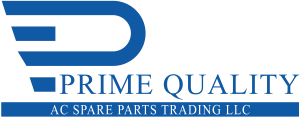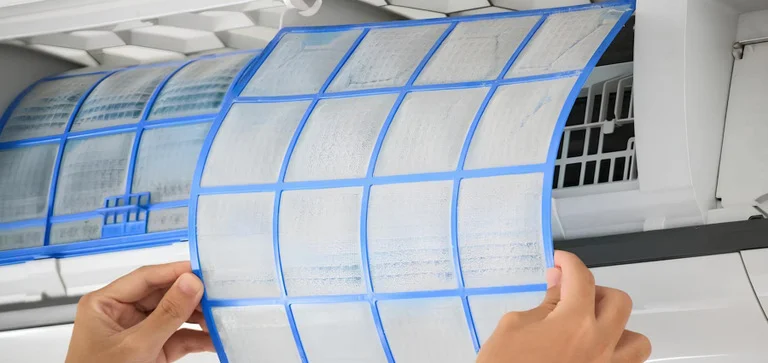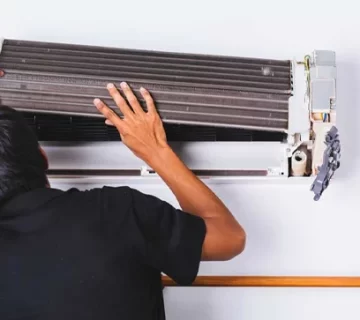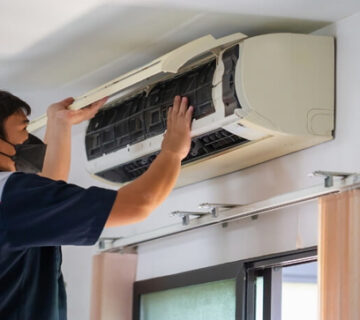AC air Filters are necessary for good performance in your HVAC system and great indoor environment. Air filters are necessary for trapping dust and pollen particles that cause indoor air to be protected. These AC Air Filters are measured by the MERV scale, which is considered as a measurement of their efficiency in filtering particles that vary in size. Frequent replacements are necessary since obstructed filters impose airflow limitations, which may result in increased energy consumption and system advancing. Varieties of filters, comprising fibreglass, pleated and HEPA-filters differ in their filtration measures. Suitable size is also required to avoid air free from filtration bypassing the system. The balancing of MERV ratings with airflow concerns is also significant their other filters especially designed for allergic condition or Odor control. Such insights, coupled with routine HVAC maintenance practices, ensures a healthy system which guarantees effective energy use and indoor air quality.
An AC air filter’s quality and state significantly impacts the efficiency of an HVAC system. The air filter serves as a primary barrier, trapping dust, allergies and other particles trying to get around the ventilation system provides secondary help. Early maintenance, that is regular replacement of the AC air filters – plays an important role in achieving continuous peak operation. It is crucial to overlook this operation for better airflow, increased energy consumption and also pressure on the rest of HVAC system. Apart from air quality, the clean and well-maintained AC air filter contributes to longer life span of a heating system as well. It is indeed a simple yet vital aspect of providing a heating and healthy home.
Here are eight important things you should know about AC (air conditioning) air filters:
1.Purpose of AC Air Filters:
An air conditioner’s AC Air Filters collect dust, debris, pollen, and other airborne particles. By doing this, you can keep your home’s air quality high and keep harmful particulates out of your HVAC (heating, ventilation, and air conditioning) system.
2.Filtration Efficiency Ratings:
MERV (Minimum Efficiency Reporting Value) scale is commonly used to measure the efficiency ratings of AC Air Filters. The filter’s ability to capture tiny particles increases with its MERV rating. Higher MERV ratings, however, may also make airflow more restricted, therefore efficiency and system compatibility must be balanced.
3.Regular Replacement:
Regular replacement of air filters is essential. The type of AC air filters, usage habits, and the existence of allergies or pets all affect how frequently a filter is used. Reduced airflow from a blocked or dirty filter makes the system work harder, which may increase energy consumption and cause system damage.
4.Types of Filters:
Air filters come in several forms, such as pleated, electrostatic, fibreglass, and HEPA filters. Every variety has advantages and disadvantages of its own. Because of their density, HEPA filters may not be appropriate for all HVAC systems, however fibreglass filters are less expensive but give less filtering.
5.Filter Size:
There are several sizes of air filters, and it’s important to choose the right size for your HVAC system. An improperly fitted filter might let unfiltered air flow through, decreasing its efficiency.
6.MERV Ratings and Airflow:
Better filtering is provided by filters with a higher MERV rating; however, airflow may be restricted. Selecting a filter with a MERV rating that corresponds to the standards of your HVAC system is important to prevent problems like decreased airflow and increased energy usage.
7.Allergen and Odor Control:
Certain filters are made expressly to collect sensitivities and reduce aromas. You might wish to think about filters with extra features like activated charcoal or other Odor-absorbing components if allergies or offensive aromas are an issue
8.Maintenance Tips:
It’s a good idea to plan regular HVAC maintenance in addition to filter replacement. This involves making sure the entire system is operating at its optimum level, cleaning or replacing filters, and looking for leaks.
Conclusion:
One of the fundamental building blocks and understanding about its subtle differences is essential for proper HVAC systems operation and ideal interior space environment. If you want to keep the maximum system performance, it is critically important to remove air filters and choose suitable type and size that various factors such as MERV ratings should also be considered while specialised filtration requirements are required. By applying such insights, one can considerably reduce the costs of energy and significantly increase service life of HVAC system at the same time making an attempt to provide healthier living conditions with improved indoor air quality. Air purifiers should be selected and used with caution to ensure that people’s living conditions are sustainable so that themselfes can also remain comfortable.



